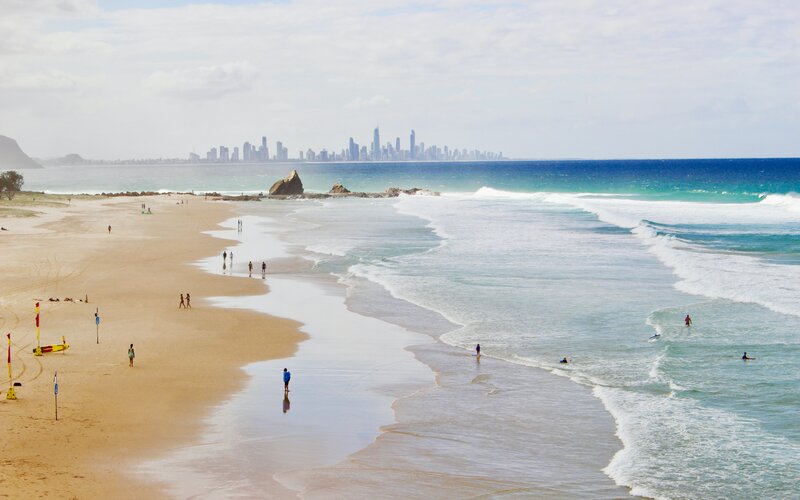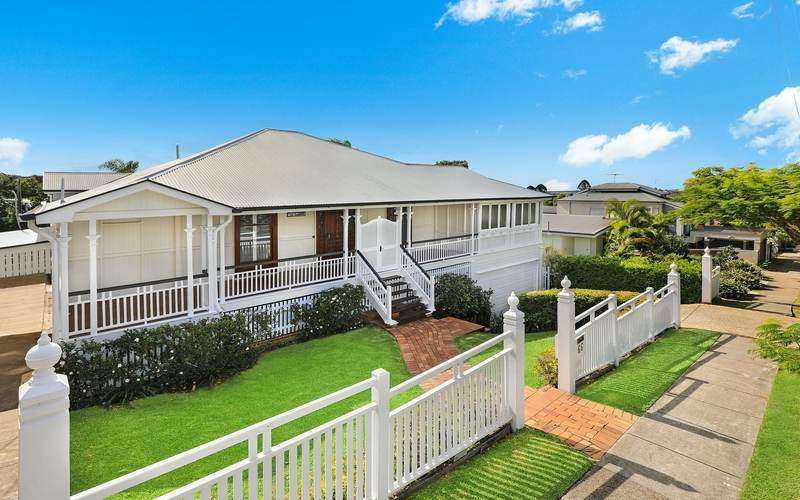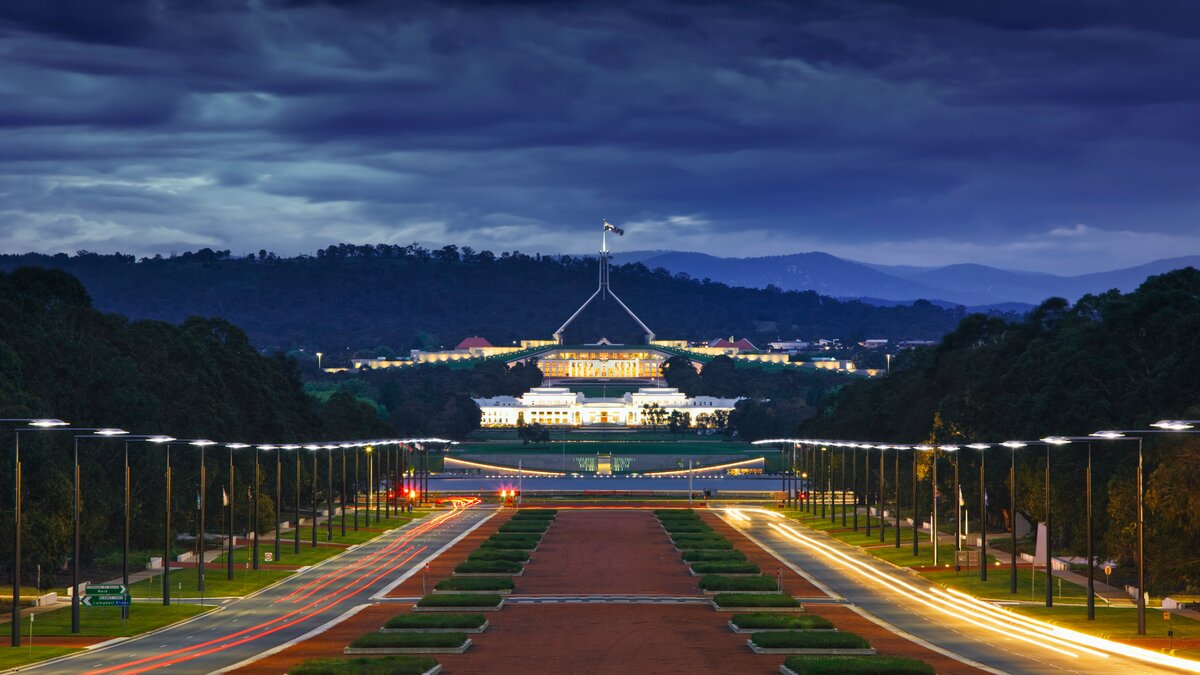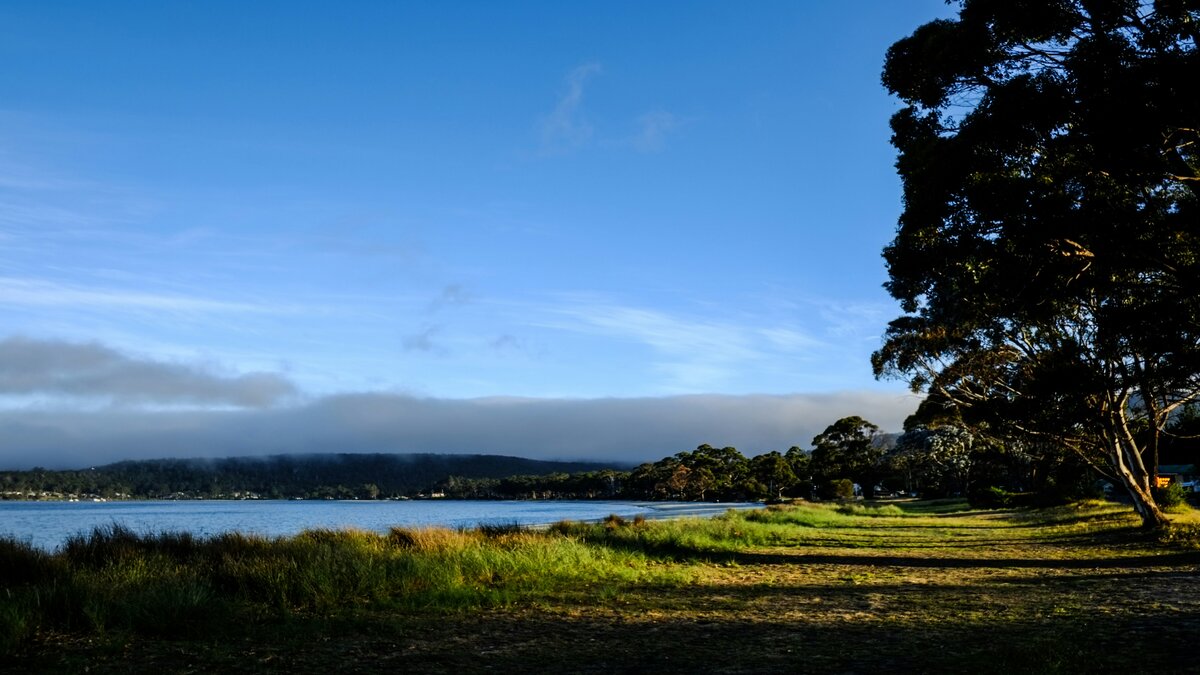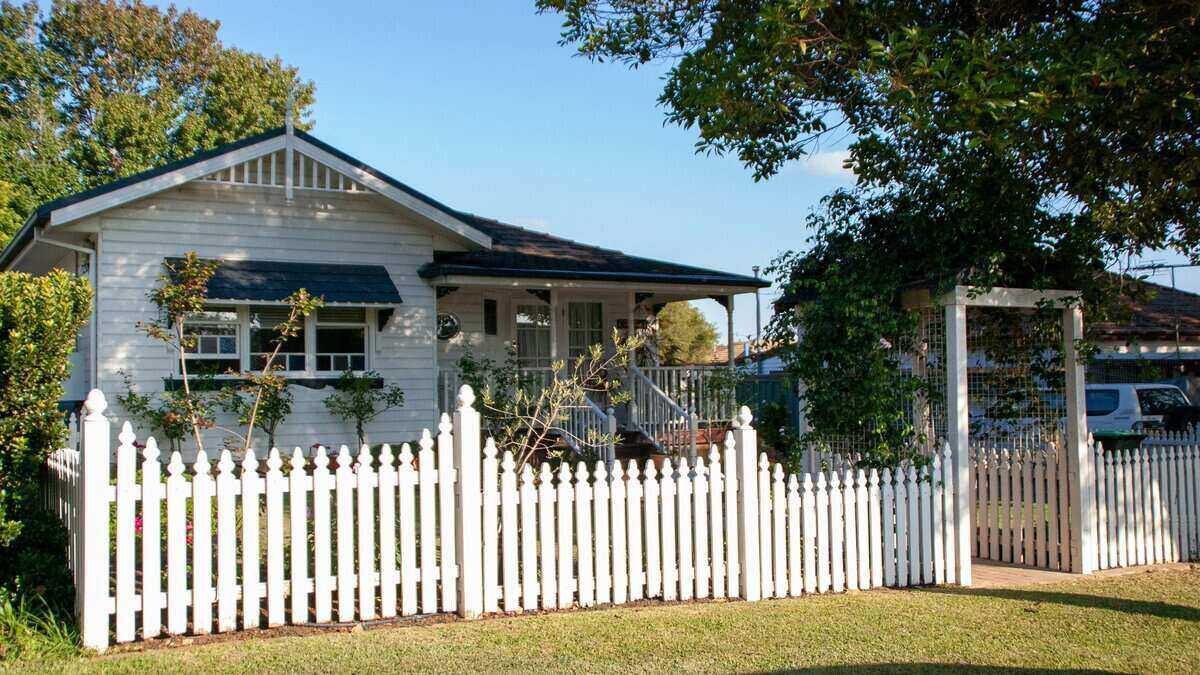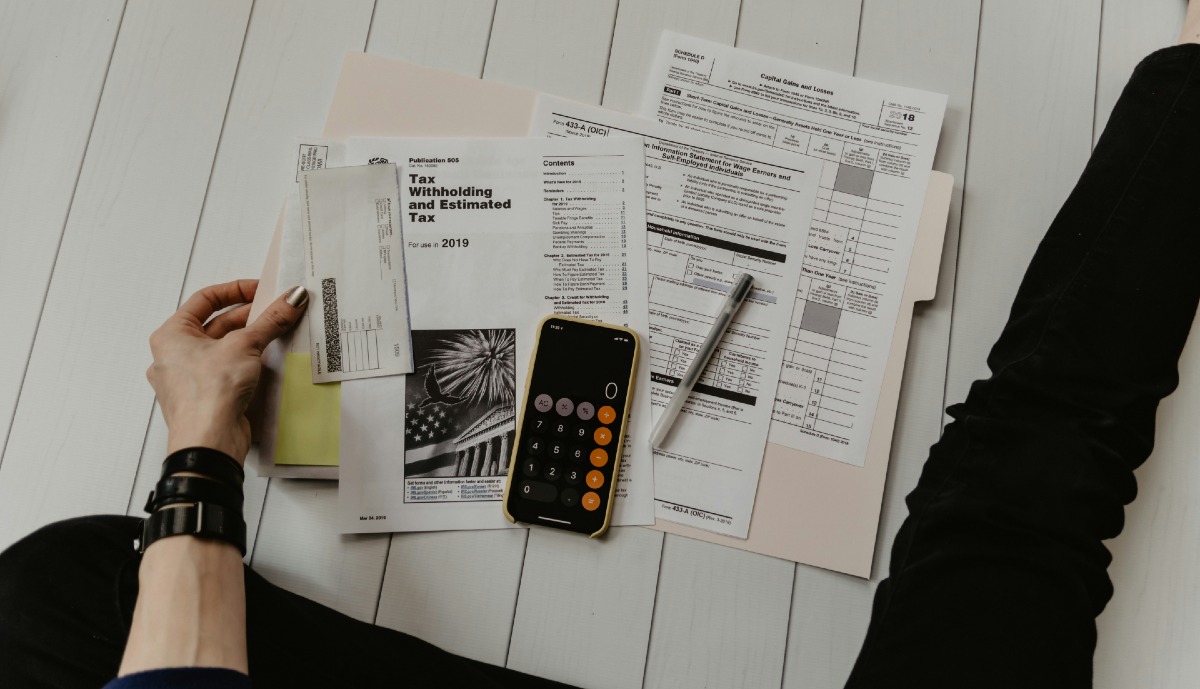Aussie Airbnb hosts are raking in up to $3,000 a month on average according to the platform, and Airbnb country manager for Australia and New Zealand Sam McDonagh says it's allowing people to pay off their household expenses.
“People are turning to Airbnb to take typically their biggest asset, their own home, and turn it into an extra income," Mr McDonagh says.
"The average Australian Airbnb host earns a modest $5,600 a year in income, which we know helps pay the mortgage, pay the bills, or even fund their family holiday."
With over nine million spare bedrooms in Australia (according to the most recent 2021 census) and the cost of home ownership only going up, it makes good financial cents (pun intended) to use your home to pay off your mortgage faster and pocket the savings.
We’ve put together a guide on how to host your property on Airbnb and turn that spare bedroom (or entire property) into a nice little money-spinner.
1. Check local laws and regulations
Before you can even get started listing your property on Airbnb, you should check local laws and regulations around Airbnbs. Different states and territories have varying rules regarding short-term rentals, and some local councils may have specific requirements or restrictions.
For example, some areas may limit the number of days you can rent out your property or require you to register your listing with the council.
If your property is part of a strata scheme, you’ll need to check the strata bylaws as some don’t allow short-term rentals like Airbnb.
2. Prepare your property
Whether you’re just renting out an extra bedroom or renting out your entire home, you need to make it guest-ready.
Start by conducting a thorough inspection to identify any necessary repairs or upgrades, such as fixing leaks, upgrading appliances, or improving the décor. A deep clean is essential, as guests expect a clutter-free and spotless space, so consider hiring a professional cleaner.
If you’re renting out your entire home when you won’t be there, you’ll want to find a safe space to store anything of high sentimental or financial value. Photo albums, your wedding dress, jewellery, bank statements, etc. are all examples of things you want to keep secure. If there’s a room in your home (such as an office or even just a closet) with a lock, put everything away in there that you wouldn’t want guests to get their hands on.
Safety is another priority—install smoke detectors, carbon monoxide alarms, and secure locks. Create a welcoming and uncluttered environment by providing all the essential amenities guests expect, like fresh linens, toiletries, and kitchen basics.
Guests always appreciate it when a host goes above and beyond to make their stay special. Simple touches like a personalised note welcoming the guests, fresh flowers, or even a bottle of champagne if you know your guests are there to celebrate something can all go a very long way.
You may also want to consider writing a welcome guide for guests that includes any quirks of the house, the WiFi password, suggestions for local landmarks or cafes in the area, an extra copy of the house rules, what you expect from your guests at check-out (take out the rubbish, lock doors, etc).
.jpg?language_id=1)
Photo by John Tekeridis via Pexels
3. List your property
When listing your property on Airbnb, writing a good listing is key to attracting guests.
Start by writing a clear, engaging description that highlights your property’s features, such as its location, amenities, and any unique features like a fire-pit or swimming pool. If you’re not a natural wordsmith, get a friend who is to help you write the listing, or even utilise AI chatbots like ChatGPT to help you get started.
Use high-quality photos that showcase each room and capture your space in the best light—this can significantly impact booking rates. Photos can make or break an Airbnb listing, so why not give your space the best chance of being booked by getting professional photos taken? Airbnb have photographers who are experts in listing photography to help your listing stand out. You simply request a photoshoot and one of their photographers will take two to three shots per room. The cost of the shoot is then automatically deducted from future bookings (it takes about three bookings for most Airbnb hosts to pay off the cost).
Pricing is another crucial factor; research comparable properties in your area on Airbnb to set a competitive yet fair price, adjusting for seasonality and demand.
Be upfront in the listing about house rules like no pets, parties, or smoking, and clearly outline check-in and check-out procedures. Decide on flexible or strict check-in/check-out times and communicate them clearly. Self check-in options, like a key lockbox, are more convenient for guests.
What should you charge for your Airbnb listing?
While you technically have the freedom to set any price you want, if you jack up the prices too much you’ll drive guests away. Finding the right price for your Airbnb can be tricky. Start by analysing the demand in your area and comparing it with similar listings. Check for properties with similar features, locations, and amenities to get a sense of competitive pricing. Seasonal trends also play a role – during peak holiday times, you may be able to charge more. You could also consider offering discounts for mid-week stays or encouraging longer bookings with reduced rates.
How much does it cost to list property on Airbnb?
It’s free to list your space on Airbnb, but hosts typically pay a 3% service fee, deducted from the booking subtotal. However, this fee can be as high as 15% for some listings or regions, depending on the pricing model you choose. Airbnb acts as the middleman, offering mediation, enforcing minimum standards, and providing protection.
Hosts are covered by Airbnb’s Host Protection Insurance, which includes up to $1,000,000 USD in liability coverage for property damage or bodily injury related to an Airbnb stay. Airbnb’s AirCover for Hosts includes expanded protection for damage and income loss.
4. Manage bookings
Managing reservations and responding to inquiries quickly is a key part of being a good host on Airbnb.
If you want to streamline the booking process, consider enabling Airbnb’s Instant Book feature. This allows guests to book without waiting for approval, which can attract more spontaneous travellers and keep your booking calendar active, especially if your property is in high demand. Some hosts prefer to have more control over who stays in their property by manually approving every guest and reading reviews from other hosts before the booking goes through. You can also block out days where your property will be unavailable to be rented out, or set a minimum or maximum number of nights guests can stay.
During your guest's stay, be available to address any issues or questions quickly, and check in to ensure everything is going smoothly.
Keeping your calendar up to date is essential for avoiding double bookings or last-minute cancellations. If you list your property on multiple platforms, consider using a channel manager to sync your calendars across different sites.
How do Airbnb hosts get paid?
Airbnb will send hosts their money, via the payment option selected, 24 hours after check-in time.
There’s a 30-day buffer in place for new Airbnb hosts before payment can be made, however. If, for example, you wind up with a reservation on the very first day you sign up to be an Airbnb host (highly unlikely) it will be 30 days before you are paid. But if you get your first booking after 31 days of signing up to Airbnb, you only have to wait the standard 24 hours.
That said, there are always outside elements that can delay the payment process, like processing delays.
Can renters be Airbnb hosts?
If you’re renting the property you want to list on Airbnb, you’re entering a very grey area.
While subletting your property through Airbnb is allowed by the Airbnb host program, it may not be allowed through your lease, landlord or body corporate. An apartment building may have its own set of rules relating to Airbnb that landlords and tenants have to follow.
Before subletting a property you rent through Airbnb, it would be wise to make sure everything stays above board by:
-
Informing your landlord. Most new leases will have a clause written into them that says sub-letting requires written consent from the owner.
-
Set down clear rules for guests which can be communicated to neighbours, landlords and building organisations, such as the frequency of guests, noise restrictions, code/key restrictions, etc.
-
Ensure your neighbours are able to get in touch with you if they’re concerned about anything – complaints from unhappy neighbours can spell trouble for your lease.
-
Notify your neighbours and landlord when someone books the property so no one is caught out by surprise.
Airbnb tax in Australia
If you rent out part or all of your home, the rent money you receive is generally regarded as assessable income, which has to be declared on your income tax return.
Capital gains tax (CGT) is payable when you sell a rental property. While CGT is generally not payable on the family home, if you’re renting out your family home (even just part of it) on Airbnb, you may face an ATO tax bill for CGT when the time comes to sell.
You can also claim expenses and depreciation for the percentage of the area of your house that was rented out. Airbnb tax advantages can include portions of:
- Internet and phone costs
- Water, power and council rates
- Upkeep and repairs
- Interest on your mortgage
- Depreciation on the cost of furnishings and equipment
Long-term renting or Airbnb?
If you’re reading this article, it’s safe to say you’ve likely already made the decision to set yourself up as an Airbnb host instead of renting out your investment property to a long-term tenant.
If you’re looking to buy an investment property solely to use as an Airbnb, it’s a good idea to consider the location of the property. If your property is a bit far off the beaten track, it may not thrive as well as a property in a holiday hotspot. In those locations, renting out your property to a long-term tenant would probably be the better option.
Airbnb pros and cons for hosts
Pros |
Cons |
|
Flexibility – you decide how long someone will stay for. |
Less social and travel freedom because you need to be there to clean the property in between stays (unless you outsource this). |
|
Charge a nightly rate that can exceed long-term rental profits. |
Furnishing the property can be expensive. |
|
Adjust rates based on peak periods. |
You have to declare rental income in your tax return and potentially pay capital gains tax when you sell the property. |
|
Airbnb Host Protection Insurance provides liability coverage for up to $1,000,000 per occurrence in the event of damage to the property or bodily injury related to an Airbnb stay. |
Airbnb’s Host Protection Insurance doesn’t cover loss of earnings or property damage due to mould or pollution. |
|
You can enlist a company to manage the key drop and cleaning for you (a cut of your earnings). |
You need to respond to enquiries quickly and deliver on the service and features promised in the listing to maintain good reviews. |
|
It’s free to advertise on the Airbnb platform. |
You will pay a 3% hosts service fee. |
|
You don’t necessarily need to worry about evicting a bad tenant. |
There may be extended periods of time where you don’t have bookings |
Long-term rental pros and cons
Pros |
Cons |
|
You know the property will be filled for an extended period of time. |
Can’t adjust the rental rate for peak holiday periods. |
|
Hand over all admin tasks to a property manager. |
About 7-10% of your rent will go to your property manager. |
|
Steady, reliable cash flow. |
Lower rental rate from tenants than Airbnb guests. |
|
More freedom, don’t need to be as hands-on as Airbnb hosts. Live a separate life and collect the rent. |
You will have to pay to advertise the property to attract tenants. |
|
You don’t need to fully furnish the property to a high standard before renting it out. |
You also need to declare rental income in your tax return |
Tips for Airbnb hosts
1. Allow for enough time between check-ins
You want to maximise the amount of revenue you pull in, which means allowing guests to check in on the same day another guest checks out. But cleaning up after each guest can take hours (think washing sheets and towels, vacuuming, mopping, washing dishes, etc.), particularly if a guest was a pig and left a big mess behind for you to clean up.
If you are renting out entire properties, allow enough time between guests to clean up or consider outsourcing this to a professional cleaning company.
2. Set out clear rules for guests
Airbnb asks guests to accept the rules as part of the booking process, so make sure everything that’s relevant is included. This means adding rules related to noise restrictions, who is and isn’t allowed in the property (no guests), whether pets or babies are allowed, rules around having parties, locking doors/windows when leaving the property, check-in and check-out times, etc.
3. Aim for Superhost status
Being a Superhost on Airbnb ranks you higher in search results and gives you a little badge on your profile. Guests also have the option to search for only Superhost listings when looking for somewhere to stay.
Essentially, being a Superhost means you’re an experienced host who goes above and beyond what’s expected to make guests' experience enjoyable. Superhosts have to maintain a 4.8 star rating to keep their status.
If the sky’s the limit, reaching Airbnb Plus status is the crème de la crème of Airbnb. If you want to get your property listed as Airbnb Plus, it needs to be the cream of the crop (read: highly Instagrammable).
4. Consider minimum-night stay requirements
This one comes down to personal preference, but if you’re allowing people to book for one night only, you’re opening yourself up to doing a lot more laundry and cleaning. You may also miss out on longer and more lucrative bookings simply because a one-night stay overlaps with it.
5. Respond quickly
If you take too long to respond quickly to messages from guests, your response rate goes down and that hurts your chances of reaching Superhost status. Even if your answer is a “no”, a simple “thanks for your inquiry but unfortunately I’m unable to host you at this time” is enough for most people.
6. Offer flexible cancellation policies
A flexible cancellation policy can attract more bookings, especially for last-minute travellers or those uncertain about their plans. While it may come with the risk of cancellations, it increases the likelihood of guests booking your property.
7. Consider outsourcing to a professional management company
If you don’t have the time or energy to manage bookings, communication, and cleanings, consider hiring a property management service. They can handle everything from inquiries to maintenance, allowing you to enjoy the income with minimal involvement. While this reduces your overall profit due to management fees, it can make the hosting process much easier particularly if you have multiple properties on Airbnb.
8. Use dynamic pricing tools
Some hosts use Airbnb’s Smart Pricing tool or third-party dynamic pricing tools that automatically adjust prices based on demand, local events, and seasonal factors. This can help you stay competitive while maximising revenue during high-demand periods.
9. Stock the kitchen with essentials
Providing basic kitchen amenities like cooking oil, spices, coffee, and tea can make your listing more appealing to guests who prefer cooking. You don’t want your guests to be rummaging around trying to find a tea towel!
10. Consider allowing pets
Allowing pets can open your property up to a broader audience, especially since pet-friendly accommodation is often in high demand. Lots of people love to take their pets with them when they go on holiday especially if they’re renting out an entire Airbnb. If you choose this route, make sure to outline specific rules for pets (size limits, cleaning requirements, etc.) and consider charging a pet fee to cover additional cleaning costs.

Ready, Set, Buy!
Learn everything you need to know about buying property – from choosing the right property and home loan, to the purchasing process, tips to save money and more!
With bonus Q&A sheet and Crossword!
.jpg)

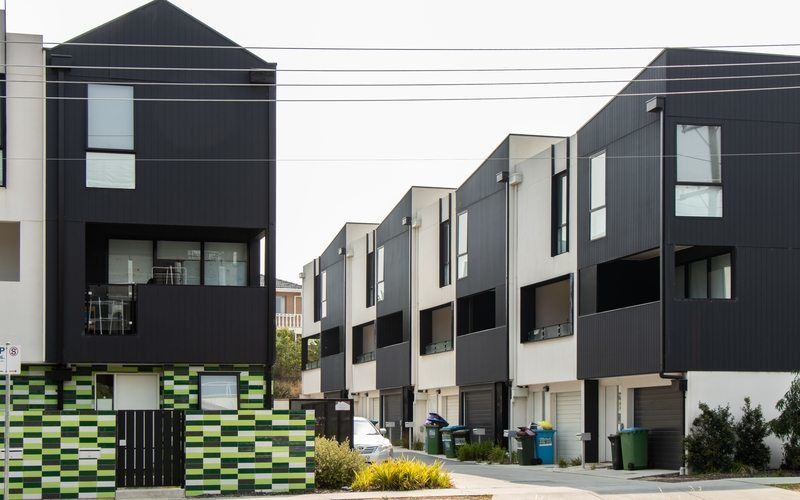
 Jacob Cocciolone
Jacob Cocciolone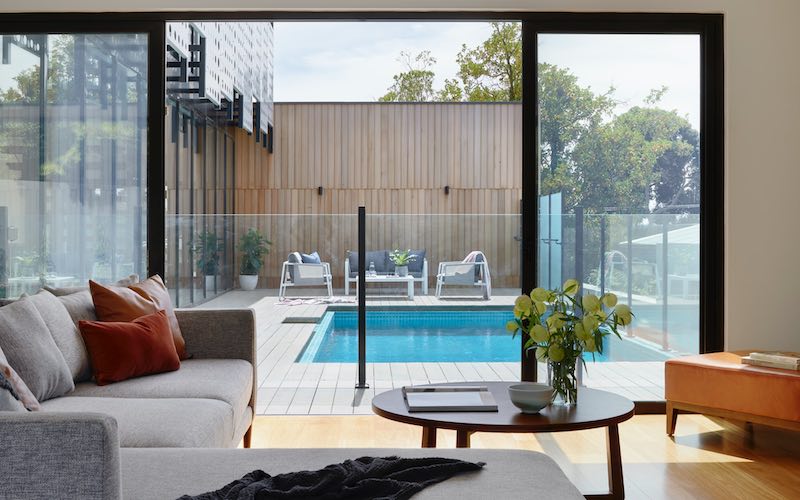
 Harrison Astbury
Harrison Astbury
